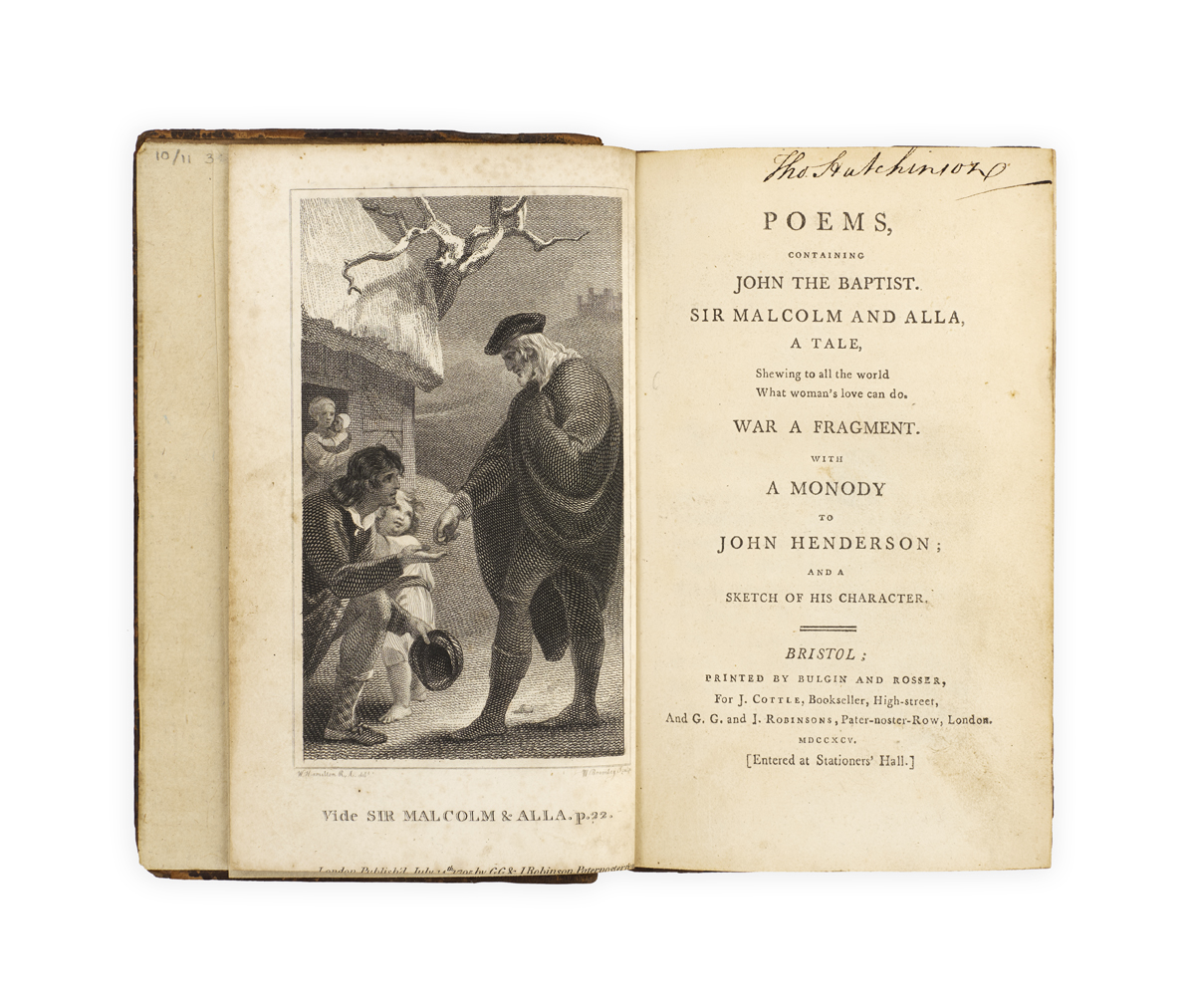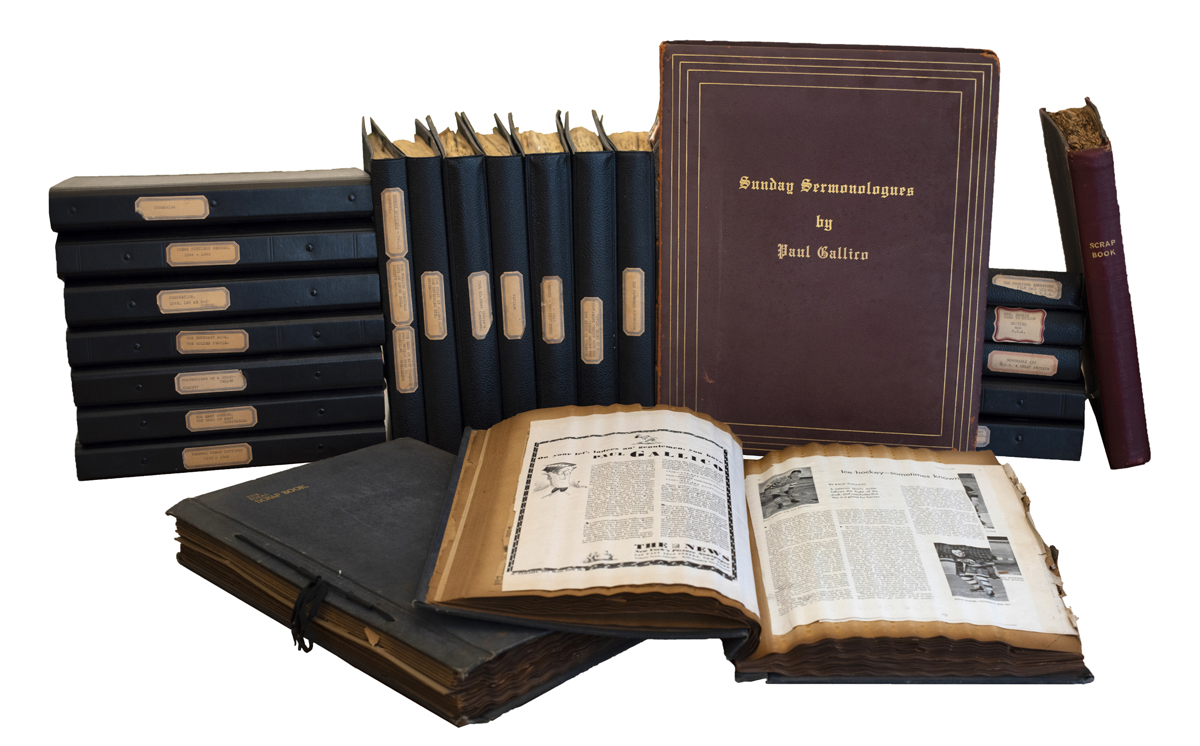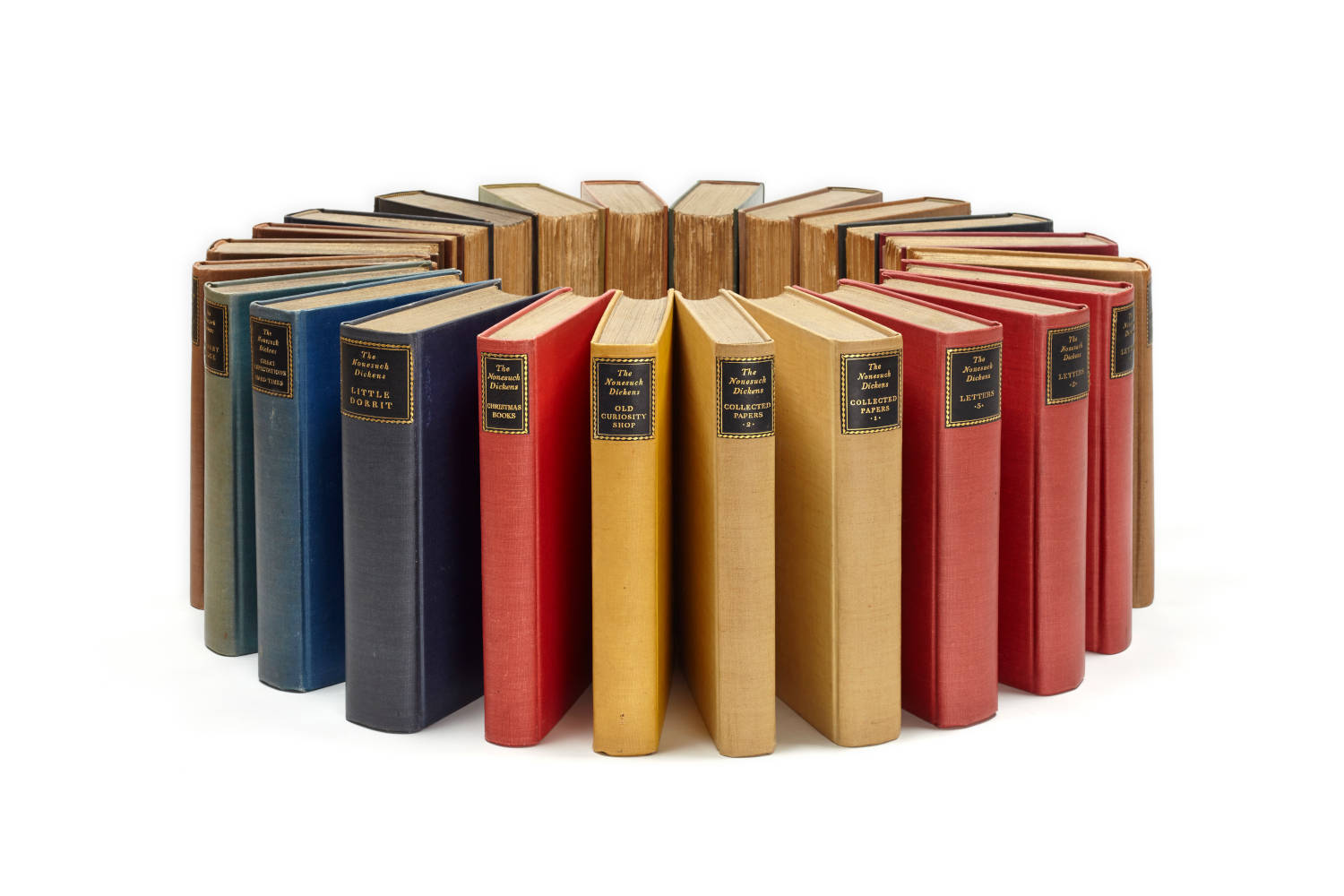
BY THE FUTURE PUBLISHER OF LYRICAL BALLADSTHOMAS HUTCHINSON’S COPY
[COTTLE, Joseph].
Poems, containing John the Baptist. Sir Malcolm and Alla, a Tale, shewing to all the World what Woman’s Love can do. War a Fragment. With a Monody to John Henderson; and a Sketch of his Character.
Bristol: Printed by Bulgin and Rosser, for J. Cottle, Bookseller … and G. G. and J. Robinson … London. 1795
Small 8vo., pp. [2], xvi, 122, [2], with an engraved frontispiece showing Sir Malcolm offering alms ‘to cheer the peasant’s ice-bound cot’ (imprint shaved), three lines of errata at the end (one of these itself a mistake and the correction rubbed out, the other two corrected in ink, with a further correction at p. 116), slight adhesion damage to blank corner of A8v/B1, sheet C slightly sprung, else a very good copy in contemporary tree calf, rebacked, covers scraped. The title-page is signed by Thomas Hutchinson, and the verso of the frontispiece by M. Hutchinson, perhaps his wife, not, we think, his sister Mary.

Added to your basket:
Poems, containing John the Baptist. Sir Malcolm and Alla, a Tale, shewing to all the World what Woman’s Love can do. War a Fragment. With a Monody to John Henderson; and a Sketch of his Character.
First edition. The Bristol bookseller Joseph Cottle (1770-1853) had been introduced to Coleridge and Southey by Robert Lovell in 1794 when the two poets ‘were in Bristol courting the Fricker sisters and preparing for Pantisocracy (as they called their scheme to marry and set up a community on the Susquehanna River). Cottle generously offered Coleridge and Southey 30 guineas for the copyright of their poems. He offered Southey an additional 50 guineas and fifty copies for Joan of Arc … and Coleridge a guinea and a half for every additional hundred lines of poetry’ (Oxford DNB). Coleridge introduced Cottle to Wordsworth in August 1795, and Lyrical Ballads followed three years later, ensuring his fame as printer and publisher.
Meanwhile Poems, his own first book, had appeared anonymously (Cottle was to acknowledge his authorship on the title-page of the second edition in 1796). Of the four poems printed here, ‘Sir Malcolm and Alla’ was ‘first attempted in the language of the fifteenth century [presumably in homage to the Bristol poet Thomas Chatterton]; but the author, not succeeding … gave it its present form, by expunging the orthography and most obsolete expressions’ (p. iii).
In ‘War a Fragment’, extracted from a longer didactic poem on happiness that he may yet publish (p. xvi), Cottle personalises that ‘worst of scourges’ through the tale of Henry and Orlando. The strictures on war in the preface suggest that Cottle, like Wordsworth, had made a tour of revolutionary France: ‘It is possible, that the author’s mind may be susceptible of higher indignation on the subject of War, from the circumstance of his having been an eye witness, on the Continent, of a part of those horrors which ever attend it’ (p. x).
‘“War a Fragment” is really a poem of some importance, if only for its novel hint that war is not the best corporate expression of a nation’s will …. The decent young citizen who ventures out at night [from the besieged city] to talk to the dying on a gory battlefield finds a British youth clutching a girl’s picture, and gives him a sharp political lecture on the cause of his undoing –
‘Perchance some statesman’s pique, some shrine profan’d
A flag insulted, or a skiff detain’d;
These blow the blasts of war ….
‘The starving children, the widows, the tinsel glory and the hollow gain, may all be commonplaces … but, at that date, the frank and imperious lines were daring and visionary’ (Basil Cottle, pp. 6-7).
Provenance. Thomas Hutchinson (1773-1849), a farmer, was close to the Wordsworth circle through his sisters Mary (afterwards Wordsworth’s wife) and Sara. Dorothy Wordsworth described him in a letter to Jane Pollard in 1795: ‘You must recollect my friends the Hutchinsons, my sole companions at Penrith, who removed the tediousness of many an hour … Their brother has a farm, of about £200 a year, and they keep his house. He is a very amiable young man, uncommonly fond of his sisters, and in short, every thing that they can desire’ (Early Letters, p. 133).
In 1801 Wordsworth stayed for three weeks with Tom Hutchinson – ‘a particular friend’ – and his sister Mary – ‘a very particular friend’ (Early Letters, pp. 263 4). Wordsworth and Mary were married in 1802, and Sara Hutchinson and Wordsworth’s sister Dorothy joined their household at Dove Cottage. Tom was an occasional visitor and in 1806 was godfather and namesake to Thomas Wordsworth.
A rare text with an important provenance. See Basil Cottle, Joseph Cottle of Bristol, Historical Association, Bristol Branch, Local History Pamphlets, 1987. ESTC locates copies at the British Library, Cambridge, Glasgow University, Cornell, Harvard, Huntington, Johns Hopkins, and Chicago.

